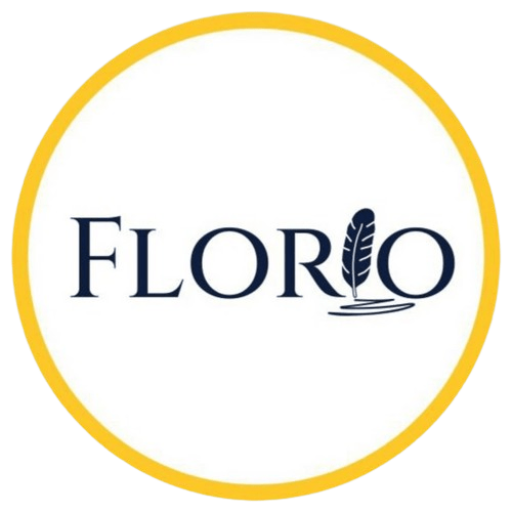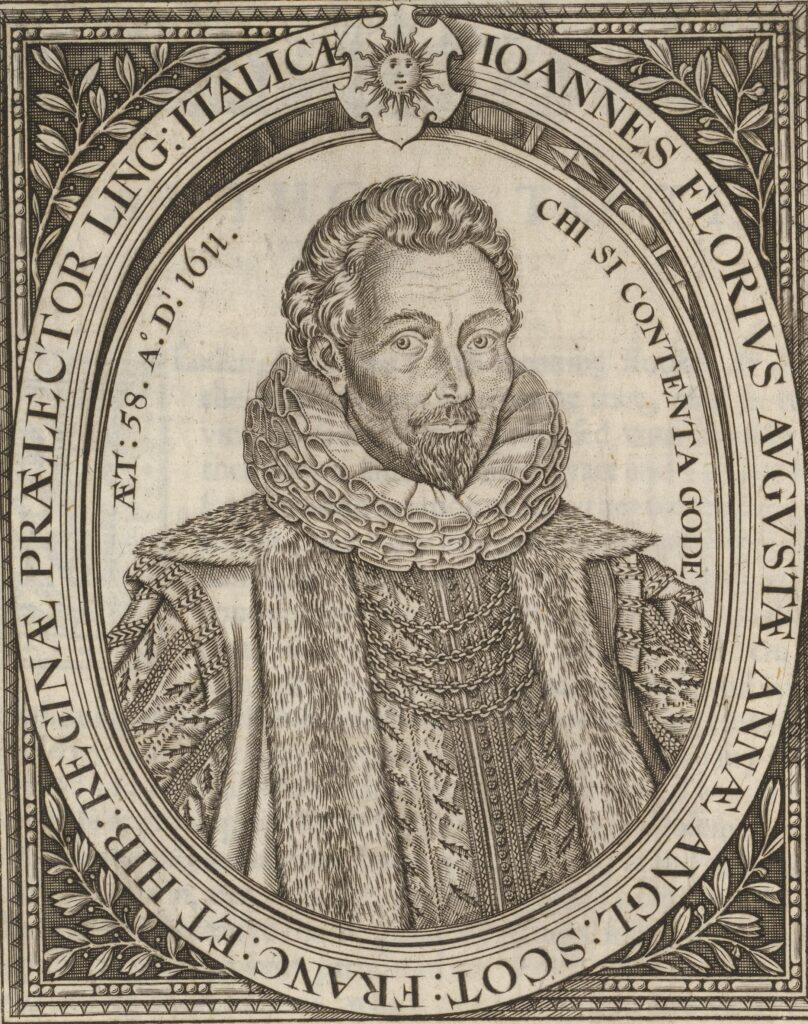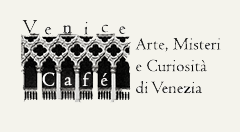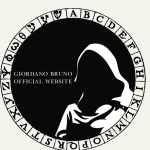Florio’s magnum opus as lexicographer was his augmented dictionary Queen Anna’s New World of Words, or Dictionarie of the Italian and English tongues (London 1611), embracing nearly 74,000 definitions. Not only was the volume almost twice larger than its predecessor, containing about 75.000 definitions, but in the preparing of it he had consulted 249 books of which one-fifth appeared on the Index of prohibited books as against 72 listed in the World of Words, most of which belonging to the XVIIth century. This number is even more significant if one remembers that the first edition of the Florentine Vocabolario della Crusca, published in 1612 lists 230 works as sources for material.
An Encyclopedia
The sources consulted by John Florio are listed in the work and include books on all phrases of general and specialized knowledge. The definitions are so fully treated that for the most part the work is not only a dictionary but is also an encyclopedia of general knowledge of the time. Examples of a few definitions, selected from diverse fields of learning, found in the dictionary will serve to indicate the comprehensive nature of this work:
Ceraunia, a blackish and blewish stone, which put in Vineger & saltpeter, wil in time grow to have a bright-glittering star in the centre of it, and taken out will just in so long time loose it againe, it is said to fall out of the clouds and that who weares it about him can not be drowned, some say it is a kinde of glittering pearle.
Esseni, certaine Philosophers among the Hebrewes, that refer every thing to providence, that deeme the soule to be immortall, that for the defense of justice would have all men fight until death, that sacrifice not with the common people, that highly esteeme purity of life and sanctity of conversation, whose manners and customes are full of vertue, who give themselves to husbandry, who live in common, and never mary, and keepe no servants, saying that a wife is the cause of discord, and servants to be wicked, and therefore in all occasions helpe one another with cheerefull willingnesse, their clothes be handsome and neat, but nothing sumptuous.
New World Of Words: Florio’s Knowledge Of Diverse Fields
Indeed, New World of Words makes evident Florio’s general and specific knowledge of such diverse fields as history, geography, biography, modern and ancient literature, theology, philosophy, criticism, botany, zoology, cooking, astrology, medicine, falconry, military science, and horsemanship. And may be said truly to afford the most remarkable conspectus of Italian literary production of that period ever produced by one man. Probably few of his contemporaries could equal Florio in scope of erudition.
Florio’S Sources: Dramatic Works
One of the most interesting features of the book-list is the high percentage of dramatic works which it contains. Vincenzo Spampanato has classified these as three tragedies (one of these, the Rosmunda of Rucellai, was one of the earliest modern regular tragedies) two tragi-comedies, Guarini’s Pastor Fido, and Celestina translated from the Spanish, five pastorals, among them being Aminta. The largest class are comedies, including Terence translated by Fabrini, Machavelli’s Clizia, and many other comedies of the Intronati di Siena. In fact, approximately one-sixth of all the sources cited by Florio are now comedies, tragedies and pastorals by such authors as Cinthio, Bandello, Boccaccio, Da Porto, Aretino, Machiavelli, Fiorentino, Ariosto, Sannazzaro, Tasso, and many old Italian Commedia dell’Arte, for a total number of 39 plays.
New World Of Words: Giordano Bruno’s Infinite Worlds
In New World of Words the philosophical works of Giordano Bruno are well represented, with the inclusion of the five moral and metaphysical dialogues which Bruno published during his stay in London between 1583 and 1585. Bruno and Florio shared a passion for words, and the cultural-political space of London in the 1580s was a context particularly amenable to the linguistic experimentation that resulted in Bruno’s vernacular philosophical dialogues and Florio’s early work on his dictionary. 1 The proper use of language is an issue that Bruno signals at the very opening of the Cena della Ceneri in the exchange between Teofilo – Bruno’s stand-in and a noun that Florio defines in Queen Anna’s New World of Words as ‘loving God’ – Smitho, and Prudenzio. Here at the outset of Bruno’s dialogue the three exchange these words:
SMITHO: Mostravano saper di greco? (Did they show themselves to know Greek?)
TEOFILO: Et di birra eziamdio (And also beer)
PRUDENZIO: Togli via quelli ‘eziamdio’ poscia é una obsoleta et antiquata diczione (Away with that eziamdio for it is a thoroughly antiquated expression).
Bruno’s scholar Aquilecchia notes that Teofilo’s saper di birra plays on the double entendre of sapere, registered in Queen Anna’s New World of Words as “to know by the minde, to wot, to isse, to ken, to understand and perceive well. Also, to taste of, to smacke of, to smell of”. Florio also notes the significance of etiando, a term that Prudenzio (a pedant) criticizes as old-fashioned: “also, moreover, eftsoone, and also, besides, furthermore, yea also”.
Bruno’s Language In Florio’s New World Of Words
Bruno was merciless with language employed speciously, and the attack on the tradition of Petrarchism in poetry that opens the argomento of the Eroici furori provides a further telling link between Bruno’s linguistic praxis and Florio’s own solution to the language question. What might at first appear to be an incongruous misogynistic tirade turns out to be a forceful critique of the fetishized language of a love poetry that transforms women into abusive and unobtainable objects of masochist desire. 2 Bruno here employs Petrarchan tropes to then obliterate them. He, in fact, asks:
“What acts in this theatre of the world are more laughable that the thoughts, contemplations, constancies, and adulations of lovers so entirely dedicated to their own destruction?”
Bruno goes on, writing: What a waste of insignia, emblems, mottos, sonnets, epigrams, books, prolix, scartafazzi – defined in Queen Anna’s New World of Words as ‘any scroule or waste paper. Also an odd corner to throw writing paper in” (as scartabello). And what useless ruminations over eyes, cheeks, busts, these white and those ruby lips, tongues, teeth, foreheads, dresses, cloaks, gloves, shoes, this pianella – in Florio “a woman’s pantofle”. All of this leads to that martello defined by Florio as:
martello: a hammer, a sledge, a carpenter’s mallet. Also jealousy of suspition in love, panting or throbbing of the heart, an earnest desiring of things absent. Sonare le campane a martello, to ringo the bels backward as in times of warre, of danger or of fire.
Florio goes on taking many other words from Bruno’s epistle:
Schifo: coy, quaint, nice, skittish, fond, peevish, puling, awkwarde or froward. Also queasie, nastie, lothsome, odious, to be shunned, eschewed or avoided, disdainfull.
Cesso: yeelded, resigned. Also a privy or close stoole. Also a scroule of paper.
Orinale: a urinall, a pisse-port
Piva: any kind of pipe or bag-pipe. Also a Piot, a pie or lay. Also a Butterflie. Also used of a mans privy members.
Fava: a beane. Also used for the prepuse or top of a mans yard.
Florio’s Copia: Bruno’s Inifinite Worlds
The most obvious characteristic of Florio’s lexical practise in New World of Words is copia, a layer on of definitions that function to provide as full a sense of a particular word’s meanings as possible. One clear consequence of such a linguistic perspective is an opening up of the potential of language to represent a multitude, perhaps we could say an infinity, of possible significations, a further indication of Florio’s relationship to the decentred parameters of Bruno’s philosophy. Bruno’s anti-Petrarchist rhetoric here at the outset of the Eroici furori serves as a model for Florio bringing Bruno’s personal linguistic revolution initiated with Il Candelaio full circle and providing Florio with a flexible paradigm for the response to the language question that his dictionaries represent. 3
Florio’s Other Sources: Ovid, Plutarch, Plato.
In his search for words, Florio had also studied in Italian translations classical authors such as Tacitus, Cicero, Plato, Plutarch, Ovid, Pliny. Besides this wide reading in all subjects a close acquaintance with purely literary masterpieces is demanded of a lexicographer. The list shows that Dante had been studied with the aid of four commentators, Vellutello, Daniello, Boccaccio and Landino. Florio must have possessed a detailed knowledge of Dante which was unusual at the period. 4 Archaisms of Dante‘s, in fact, are pointed out on several occasions:
Cagne magre, used of Dante for the base and greedy raskality of people.
On another occasion a difficult reading in Machiavelli is dwelt upon:
Eruditione, erudition, teaching, instruction, nurture, bringing up, education. Yet I finde this word used by Machieuell in another sense towards the end of the last Chapter of the second booke of his Decades upon Liuie, conster it as thou please, hee useth it thus, restaua il campo per tutto debole a potere resistere ad una eruditione che quelli di dentro hauessino fatta, some thinke it shoud bee eruttione.
Some of his characteristics as lexicographer are reminiscent of those which he displayed as a translator. It is with an artist’s relish that he assembles a knot of good words:
Paorno: darke, obscure, suttie, duskie, pitchie, deadly.
Sometimes, when a suitable opportunity arises, he is able to get at his tricks of style:
Hierusalem: as much to say, Vision of peace and flower of our felicity.
As in the Montaigne, John Florio has at his command an astonishing wealth of English vocabulary and idiomatic or proverbial expression 5:
Cacciar carote: to make one swallow a gudgeon, or beleeue a lie, and that the Moone is made of greene-cheese.
Gran romore et poca lana, great noise an dlittle wooll, or as we say much a doe about nothing.
One of the definitions shows what an impression the Essex tragedy made upon him:
Ecnéphia: a kind of prodigious storme comming in sommer with furious flashings, the firmament seeming to open and burne, as hapned when the Earle of Essex parted from London to goe for Ireland.
Many of the definitions in New World of Words are so full that the work is in many respects an encyclopaedia of general knowledge as well as a dictionary. As an example of how interesting such a grouping can be, here is a collection (which does not profess to be absolutely complete) of Florio’s explanations of words connected with the theatre or the drama:
Comedia, a Comedy, an enterlude.
Comediante, a Comedian, a stage plaier.
Commo della tragedia, the complaint of a chorus in a tragedy.
Coro,…Also a Chorus in a Tragedie…
Drammatico poema, a poeme where the auctor speakes not himselfe, but makes others to speake. Also a poeme that shutteth up many troublesome accidents with a fortunate conclusion.
Farsa, a merry tale, a pleasant discourse. Also a poeme that shutteth up many troublesome accidents with a fortunate conclusion.
Farsa, a merry tale, a pleasant discourse. Also an enterlude or stage-play.
Histrionia, athe feate or science of stage-plaiers.
Orchestra, a Theater wherein musitions and singers sit, a chiefe place betweene the Stage and the common seates of a Theater…
Proscenio, a stage for Plaiers to play upon, but properly the place before a scaffold out of which the Plaiers come.
Protatica persona, one that in the beginning of a Comedie is brought in to lay open the argument and appeareth no more.
Ruolo, a Checke-role of names. Also a plaiers part written for him to learne.
Scena, a stage or scaffold in a theater or play-house. But properly the fore-part of a Theater where the Plaiers make them ready, being trimmed with hangings, from out which they enter upon the stage. Used also for any place where one doth shew and set forth himselfe to the world or to view. Also any one seene or entrances of a Comedie or Tragedie. Used also for a Comedie or Tragedie.
Tragedia, a tragedie, or mornfull play, being a loftie kinde of poetrie, and representing personages of great state, and matter of much trouble, beginning prosperously, and ending unfortunately.
Tragicomedia, a tragicomedie, beginning mournfully, and ending merily.
Tragisatiricomedia, a play whose beginning is tragicall and dolorous, whose middle pastorall and siluane, and whose end comicall and merie.
Zane,…a seruile drudge or foolish crowne in any comedy or enterlude play.
New World of Words is not merely a word-list but an epitome of the general knowledge of the period. To contemporaries John Florio must have appeared as a walking encyclopaedia upon all subjects as well as the great authority on Italian. It is not an exaggeration to say that no single individual has ever done more than John Florio to spread Italian culture in England.
Bibliography
Gatti, Hilary, Giordano Bruno: Philosopher of the Renaissance, Ashgate, 2002.
Yates, F.A. John Florio, The Life of an Italian in Shakespeare’s England, Cambridge University Press, 1934.




